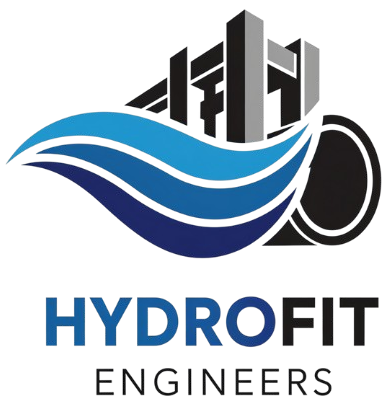Contact : +91-79045 61980 | Email: hydrofitengineers@gmail.com
High Pressure Ball Valves
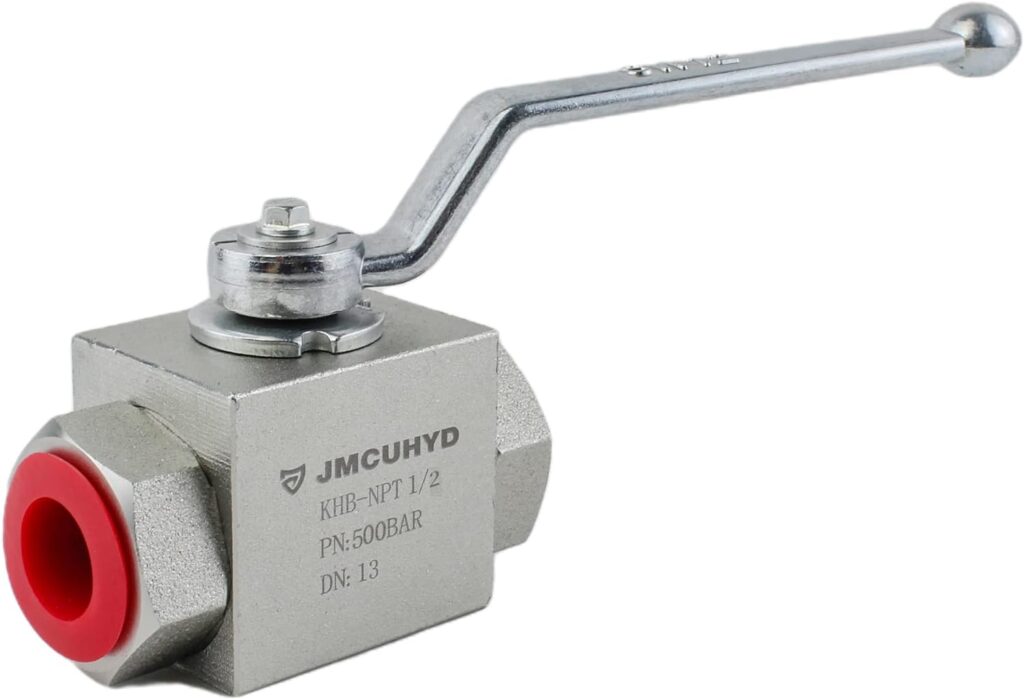
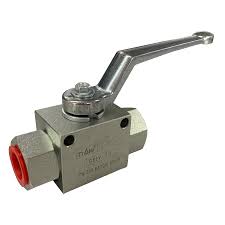

High Pressure Ball Valves for Hydraulic Applications
Size Range of HP Ball Valves : 1/4″ BSP to 2″ BSP
Pressure Range : 50 bars to 500 bars
Material of Construction : Carbon Steel, Stainless Steel SS 304 and SS 316 grades and Brass
Maximator® 2-Way High Pressure Stainless Steel Ball Valves are available with 1/4″ and 3/8″ orifices for up to 21,000 psi and the 1/2″ orifice for up to 10,000 psi
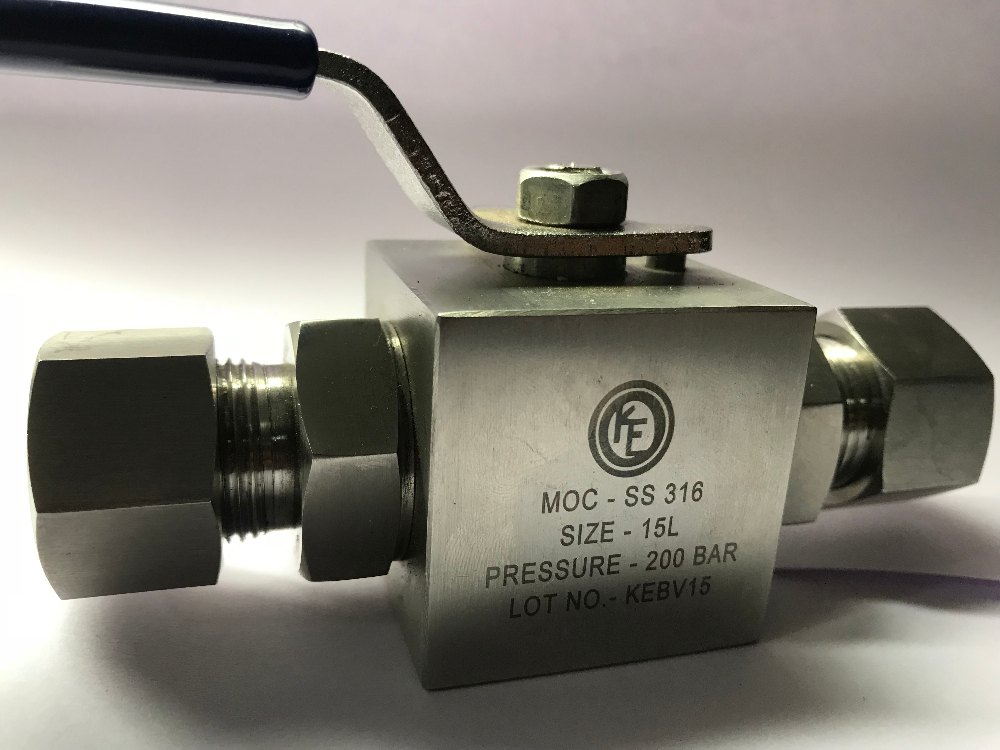
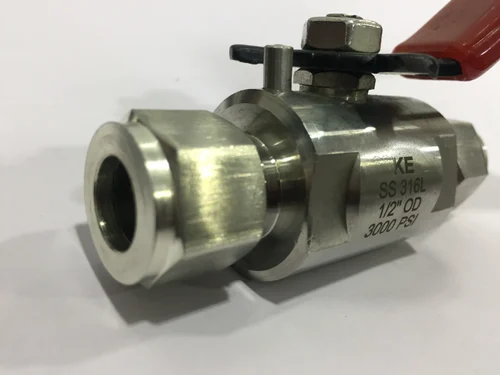
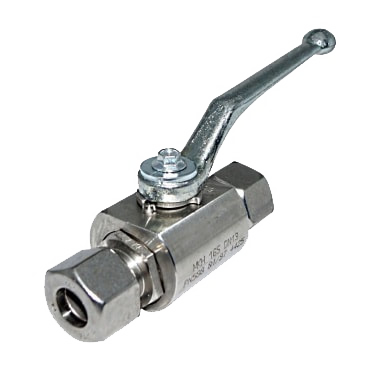
High Pressure Ball Valve - OD Tube Ends
High-pressure ball valves with OD (outside diameter) tube ends and ferrule type fittings are specialized components used in hydraulic and fluid systems to control the flow of high-pressure fluids. These valves are designed to handle extreme pressures and are commonly used in applications where reliable, leak-proof connections are critical.
Design and Construction
High-pressure ball valves are typically made from durable materials like stainless steel, which can withstand high pressures and corrosive environments. The ball inside the valve, which controls the flow, is usually made from hardened stainless steel or another robust material to prevent wear and tear over time.
- Ball Design: The ball in these valves has a hole through its center, which aligns with the flow when the valve is open and blocks the flow when the valve is closed.
- OD Tube Ends: The valves are designed with outside diameter tube ends, which allow them to connect seamlessly with tubing systems. The tube ends are typically straight, allowing for easy connection with other tubing using ferrule type fittings.
- Ferrule Type Fittings: These fittings provide a secure, leak-proof seal by compressing a ferrule onto the tubing when the nut is tightened. Ferrule fittings are widely used in high-pressure applications because they provide a reliable seal and are easy to install and disassemble.
Operating Principle
High-pressure ball valves operate by rotating the ball inside the valve using a handle or actuator. When the handle is turned, the ball rotates, aligning its hole with the flow path to allow fluid passage or blocking it to stop the flow. These valves are typically quarter-turn, meaning that a 90-degree turn of the handle opens or closes the valve completely
Applications
These high-pressure ball valves are used in various industries where fluid control under high pressure is necessary:
- Hydraulic Systems: Used in hydraulic circuits for controlling fluid flow under high pressures, often found in industrial machinery, heavy equipment, and high-pressure testing systems.
- Chemical Processing: Employed in systems that handle corrosive or hazardous fluids, where leak-proof and high-pressure resistant valves are essential.
- Oil and Gas: Utilized in oil and gas exploration, production, and refining processes where high-pressure fluid control is required.
- Laboratory and Testing Equipment: Used in high-pressure testing and calibration systems, where precise control of fluid flow is critical.
Advantages
- High Pressure Tolerance: These valves are designed to operate under extremely high pressures, often exceeding 10,000 psi.
- Reliable Sealing: The ferrule type fittings ensure a secure, leak-proof connection, critical in high-pressure applications.
- Ease of Operation: The quarter-turn design allows for quick and easy operation, making these valves user-friendly.
- Durability: Made from high-quality materials like stainless steel, these valves are resistant to corrosion and wear, ensuring a long service life even in harsh environments.
Considerations
- Compatibility: It’s essential to ensure that the OD tube size and ferrule type fittings are compatible with the existing tubing system.
- Pressure Rating: The valve’s pressure rating must match or exceed the system’s operating pressure to ensure safe and reliable operation.
- Installation: Proper installation is crucial for ensuring a leak-proof connection, especially in high-pressure systems where even a small leak can lead to significant issues.
High-pressure ball valves with OD tube ends and ferrule type fittings are essential components in systems that require precise control of fluid flow under extreme pressures. Their robust design, reliable sealing, and ease of operation make them ideal for use in demanding applications across various industries, including hydraulics, chemical processing, oil and gas, and laboratory testing. Proper selection and installation of these valves are critical to ensure the safety, efficiency, and longevity of the fluid system.
